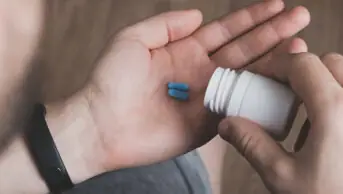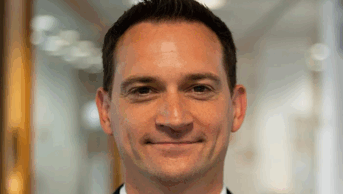Originally launched in October 2019, with referrals made by NHS 111 providers, the Community Pharmacy Consultation Service (CPCS) was expanded in November 2020 to include referrals from all GP practices in England.
CPCS allows community pharmacists to support general practice by undertaking minor illness consultations after referral[1]. CPCS pilots have demonstrated that patients who receive a same-day appointment with a community pharmacist value this service, and almost nine in ten (89%) people say they trust community pharmacists a great deal or a fair amount. Some pilots have suggested that 10% of GP appointments could be referred to community pharmacists via the CPCS[2,3].
Since October 2019, an average of 10,271 patients per week have been referred to CPCS for a booked consultation with a pharmacist, following a call to NHS 111. These are patients who may otherwise have seen a GP[4]. Primary care networks (PCNs) are being incentivised to increase their referral rates to the CPCS[5].
General Practice Solihull (GPS) Healthcare is a PCN in Birmingham and Solihull, serving a population of 44,000 patients in an area of low deprivation. As an early adopter site, a pilot was conducted at one GP practice in March 2021 for one month before rollout to the five remaining practices in the PCN. Reception staff were trained by the clinical pharmacy team in how to refer to CPCS, conditions suitable for referral, exclusion criteria and signposting (e.g. the PCN website self-help and wellbeing section).
Following a successful pilot, a plan was put in place to roll out to the whole PCN in April 2021. An online launch meeting was held for all clinicians in the PCN. This session consisted of four elements: presentation on CPCS from the Local Pharmaceutical Committee (LPC) Chief Officer to provide an overview of the benefits of the service; sharing data from the pilot practice; a live demonstration of how to complete a CPCS referral on the clinical system; the PCN lead community pharmacist explaining the process once a referral is received in the community pharmacy, and how safety-netting and red flag checks were covered during the consultation. In order to facilitate access to healthcare services, community pharmacies within the PCN offered on-the-day phone appointments to all patients referred via CPCS, provided the referral was made before 16:00 that day.
Prospective data of referrals across all sites were collected by extracting data from the CPCS template on the SystmOneÒ clinical system from March to October 2021. For quality assurance, feedback surveys were collected from patients and reception staff.
From March to October 2021, a total of 1,016 referrals to the CPCS were made across the PCN.
The top ten conditions referred accounted for 562 out of 1,016 referrals (55%). These were urinary tract infection (16%), earache (14%), skin rash (14%), cough (11%), sore throat (10%), vaginal itch (9%), bites (8%), red eye/irritation (7%), lower back pain (6%) and vaginal discharge (5%).
In the first month of CPCS launch in the PCN, 34% of referrals made to the CPCS were returned to the GP, with this number declining to 27% (94 out of 348 patients) after 3 months.
A patient satisfaction survey was sent on AccuRx to all patients referred to CPCS in the first 3 months (n=323). Overall response rate was 17% (n=54). The average patient satisfaction score was 4 out of 5; very good.
In the reception staff survey (n=27), 67% of respondents were very confident or extremely confident with sending CPCS referrals. In addition, 81% felt it was a good service to offer patients and 52% had a positive or very positive impression about CPCS and community pharmacists dealing with minor illnesses and ailments.
Community pharmacists record the CPCS consultation on PharmOutcomes. Referral outcomes data for CPCS referrals made in the first six months of service was provided by NHSI. Of the 543 CPCS referrals made to community pharmacy, 217 (40%) of patients required advice only, 76 (14%) required appropriate advice and sale of a medicine, 148 (27%) patients were signposted to other services, 34 (6%) patients required escalation, 62 (11%) patients were given appropriate advice and referred to a local PGD service and in 12 (2%) no outcome was given.
Several challenges were encountered in setting up CPCS at GP practices and community pharmacies. Within GP practices, these included staff training, and were focused on the most significant step in initiating the service and changing perceptions about what community pharmacists could treat. Community pharmacists reported challenges related to confidence with service delivery and receipt of referrals. Poor access to IT made it difficult for some pharmacies to receive referrals.
NHS England reports two national pilot studies that were run prior to national rollout of service. A pilot in Blackburn with Darwen/Knowsley completed 1,034 community pharmacy consultations in a six-month period, by a group of 52 general practices covering a population of 298,000 patients. It reported a saving of 68 GP sessions during a six-month period[6]. The Bristol, North Somerset and South Gloucestershire pilot found that for 4,028 community pharmacy consultations, 71% of patients received advice or advice and an over-the-counter product to manage their concern, compared with 54% in our experience[2]. In both cases, advice without sale of a medicine was the most frequent outcome[2].
In summary, it is possible to set up the CPCS and offer an alternative treatment pathway for patients with minor illnesses. Our experience shows that 276 GP appointments were saved in the first 3 months of the service. As of March 2022, 1,511 patients have been referred. Further challenges encountered mainly relate to the training of new staff who have joined since initial rollout. We have therefore developed a referral protocol that is included during induction. Feedback from community pharmacists regarding inappropriate referrals is relayed back to practice staff to aid service refinement. Set-up and resilience of the service poses some challenges, but these can be overcome by periodic training and good communication between PCNs and community pharmacists.
Acknowledgements
Thanks go to George Scott, digital systems support officer at General Practice Solihull (GPS), for data processing support and the clinical pharmacist team at GPS.
Susan Youssef, clinical pharmacist at GPS and Lucy J Hillman, GP partner at GPS
Contact: susan.youssef@nhs.net
- 1Watson MC, Ferguson J, Barton GR, et al. A cohort study of influences, health outcomes and costs of patients’ health-seeking behaviour for minor ailments from primary and emergency care settings. BMJ Open. 2015;5:e006261–e006261. doi:10.1136/bmjopen-2014-006261
- 2GP Referral to NHS Community Pharmacist Consultation Service – Bristol, North Somerset and South Gloucestershire pilot. NHS England. 2020.https://www.england.nhs.uk/publication/gp-referral-to-nhs-community-pharmacist-consultation-service-bristol-north-somerset-and-south-gloucestershire-pilot/ (accessed Apr 2022).
- 3Referring minor illness patients to a community pharmacist: new referral pathway for primary care networks. NHS England. 2022.https://www.england.nhs.uk/primary-care/pharmacy/community-pharmacy-contractual-framework/referring-minor-illness-patients-to-a-community-pharmacist/ (accessed Apr 2022).
- 4New partnership signals exciting development opportunity for community pharmacists. RCGP. 2020.https://www.rcgp.org.uk/about-us/news/2020/september/new-partnership-signals-exciting-development-opportunity-for-community-pharmacists.aspx (accessed Apr 2022).
- 5Our plan for improving access for patients and supporting general practice. NHS England. 2021.https://www.england.nhs.uk/coronavirus/wp-content/uploads/sites/52/2021/10/BW999-our-plan-for-improving-access-and-supporting-general-practice-oct-21.pdf (accessed Apr 2022).
- 6GP referral to NHS Community Pharmacist consultation service – Blackburn with Darwen/Knowsley. NHS England. 2022.https://www.england.nhs.uk/primary-care/pharmacy/pharmacy-integration-fund/community-pharmacist-consultation-service/gp-referral-to-nhs-community-pharmacist-consultation-service/ (accessed Apr 2022).


